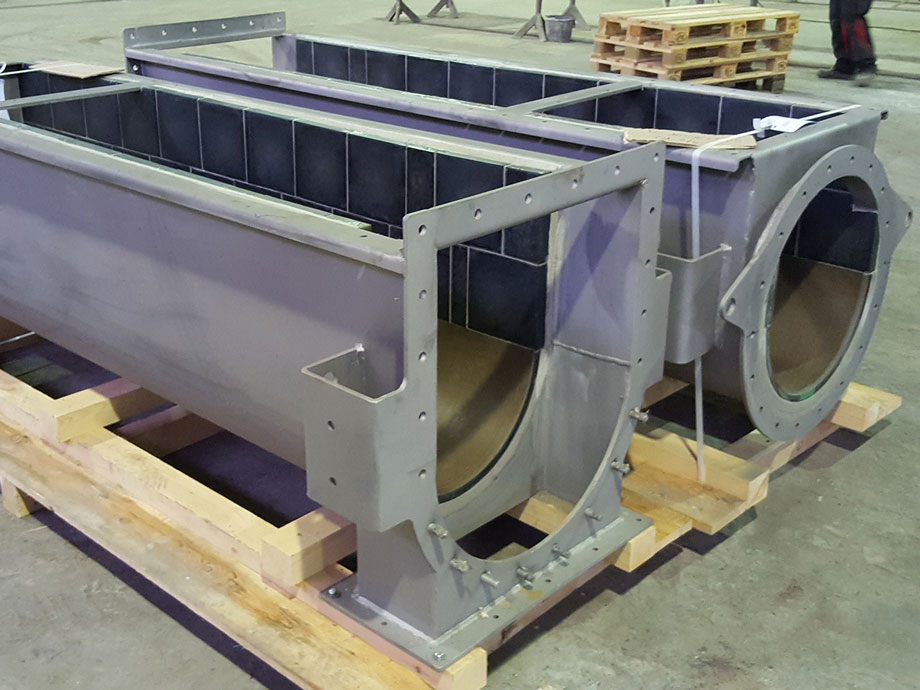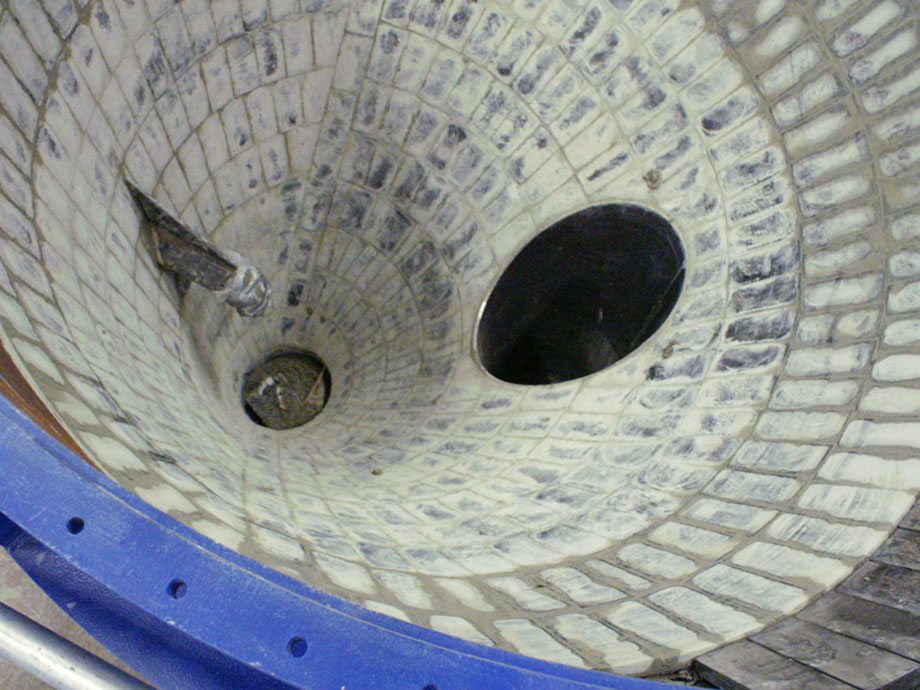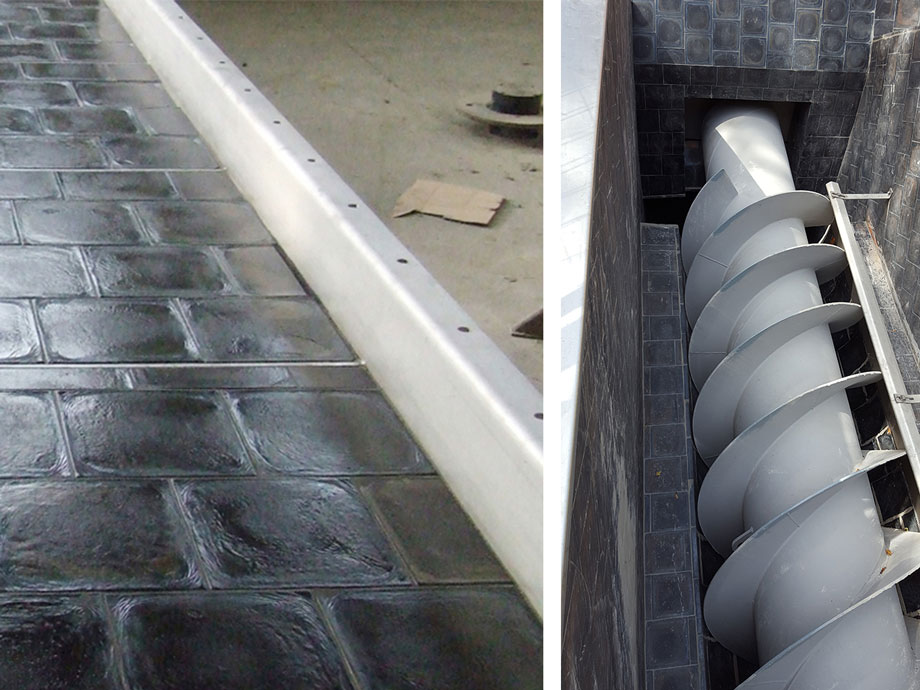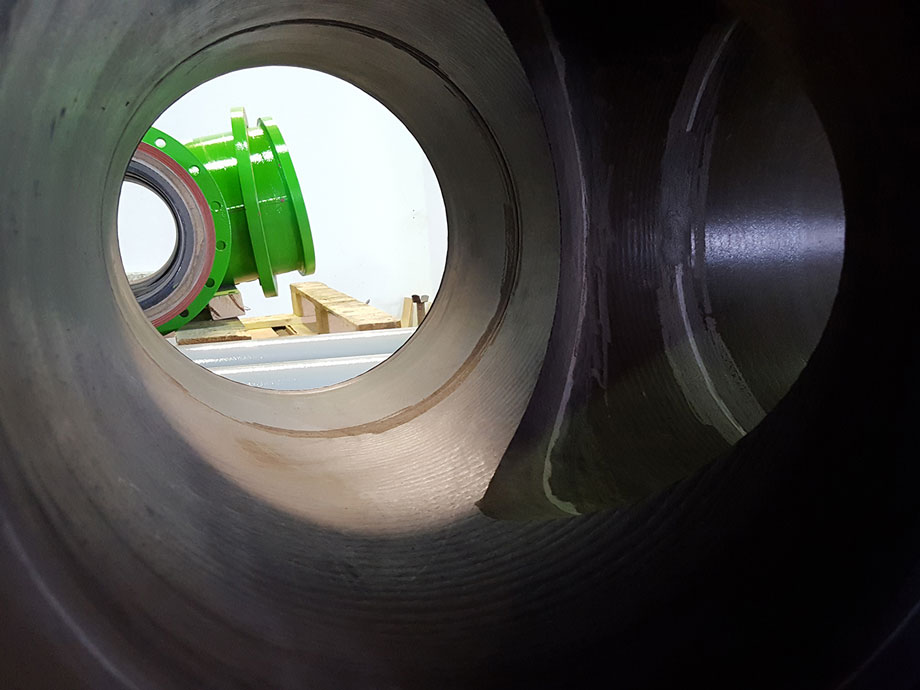CAST BASALT – OUTSTANDING COST EFFICIENCY DUE TO ITS EXTREME HARDNESS
Cast basalt is a mineral material which, thanks to its special characteristics, is superbly suitable as wear protection: Cast basalt offers the following advantages:
- Exceptionally high wear resistance
- Unlimited resistance to humidity
- High compressive strength and resistance to nearly all acids and alkalis
- Full corrosion resistance
- Always maintains a smooth and even surface (favourable coefficient of friction for bulk solids)
- Excellent price/performance ratio (preventive and economical)
Manufacture and properties
Cast basalt is produced by melting selected natural basalt – broken into sizes of 20 – 50 mm – in shaft furnaces at temperatures around 1,300°C, followed by casting into the desired moulds. Of fundamental importance is the subsequent tempering process, in which the molten basalt forms uniform, spherulitic crystals that contribute to its physical properties such as extreme hardness and abrasion resistance.
Product range and formats
Cast basalt wear parts are produced as:
- Tiles
- Formpieces
- Straight pipes and bends
Monolithic straight cylinders are available up to a diameter of 700 mm with wall thicknesses ranging from 20 to 30 mm and a standard length of 500 mm.
Areas of application
Cast basalt is the most frequently used wear protection material. The main areas of application are the wear resistant linings for:
- Piping
- Mechanical conveyor systems such as chutes, trenches, and chain conveyors
- Bunker systems, silos, tanks, and unloading ramps
- Cyclones, separators, classifiers, and reducers
Bunkers, silos, tanks
The walls and outlets of bunkers, silos, and other tanks used for the storage of bulk materials are subject to strong abrasive wear. Strong friction wear occurs when emptying is compounded by impact wear during the filling process.
A wear resistant lining with hexagonal or rectangular cast basalt tiles has proven to be a successful and economical solution. Special formpieces are manufactured for the flutes and the bunker saddles. Circular bunkers and silos are lined with radial, rectangular, or hexagonal formpieces that precisely match the required circumference.
To improve adhesion, corrugated wire mesh is spot-welded to the vertical steel walls.
Cyclones, separators, and classifiers
Screening, separating, grading, classifying – increased abrasive wear is frequently encountered during these processes. Cast basalt linings are often a standard component.
- Expertly manufactured formpiece linings that are precisely adapted to the steel casing of the plant component (frequently in the form of radial hexagonal linings)
- Cyclones and separators: Manufactured according to customer drawings, complete with steel and built-in wear protection lining
- Larger separators and cyclones: Lining installed according to the steel construction drawings of the manufacturer
Cast basalt lined piping
The transport of abrasive media, in fact of virtually all granular materials, in enclosed pipelines has the advantage that it is non-polluting, generates neither dust nor smell, and even saves valuable space. Completely lined pipes can be manufactured with the following maximum lengths:
- Straight pipes: up to 6000 mm
- Pipe bends: up to approx. 2000 mm
Cast basalt lined piping is extremely wear resistant and is used wherever highly abrasive materials are conveyed pneumatically or hydraulically, for example:
- Fine ores
- Fly ash
- Furnace dust
- Lime
- Coal and pulverised fuel
- Coke
- Sand
- Slag
- Backfill
- Cement










